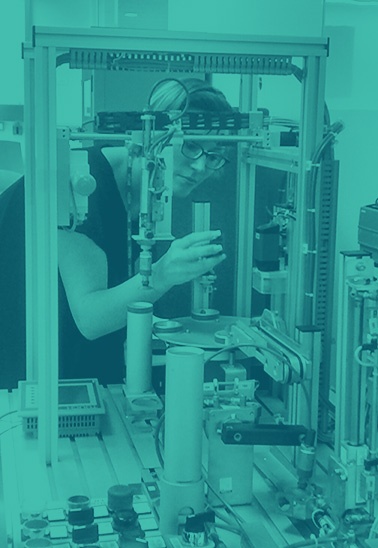EPSRC Centre for
Doctoral Training
in
Embedded
Intelligence
what is
embedded intelligence?

Embedded Intelligence is...
Embedded Intelligence (EI) requires the use of sensors, communications and processing that are embedded into the product, process or service in order to meet specific objectives. As such, the embodiment of EI depends on a multidisciplinary approach for a successful implementation.
We see Embedded Intelligence as the integration of intelligence into products, processes and services so they work better and can increase productivity, efficiency and connectivity.
-
a truly multi-disciplinary subject area
New technological challenges demand graduates equipped with knowledge in areas such as manufacturing, business, operation, big data, digitisation and the circular economy.
Therefore by its very nature, problem-solving in Embedded Intelligence (EI) requires a multidisciplinary approach for successful implementation. EI is underpinned by diverse areas of expertise Aeronautical, Automotive, Electrical, Manufacturing and Mechanical Engineering; Microelectronics, Sensors; Design, Functional Materials, Maths, Physics, Chemistry, Computer Science and Information Management.
-
Impact on society & industry
It has been predicted that the integration of embedded processors with sensors, intelligence, wireless connectivity and high level operating systems will make intelligent designs become a part of our lifestyle.
Infrastructure systems and manufacturing are seen as priority areas for UK Government. Whether it be the development or application of manufacturing processes to drive productivity and growth, the handling of data, communications and design of technologies or services for the evolving needs of society, EI will be essential.
The Centre
An academic + industrial partnership

A community of practice
Our graduates contributed to developments in Embedded Intelligence solutions during their studies, and beyond. They were supported by over 40 academic members of staff and all of them were co-sponsored by industrial specialists in various fields of relevance to EI. Our researchers were part of a cohort of students recruited every year and they worked on industrially relevant research problems for large companies as well as for SMEs, and nonetheless world-leaders in their fields.
-
industry-informed programme
Each researcher followed a bespoke and strategic individualised industry-informed programme of training over a period of four years, comprising:
A focused, deeper technical training and experience in an Embedded Intelligence thematic area central to their doctoral studies coupled with group and individual industry-led projects in their first year.
Translational training in essential underpinning knowledge for embedded systems and technology; Transferable skills to fulfil expectations of their future leadership roles in the industry, in society and as entrepreneurs.
-
Our unique 4-year PhD
Our researchers had access to considerable expertise in postgraduate teaching and research supervision in the fields of sensors, system design, embedded software and systems, applications engineering and systems services.
They also benefitted from the accredited 'Transition Zone' training programme and had the opportunity to gain an extra qualification (ILM Level 3 Certificate in Leadership and Management) via the Institute of Leadership and Management.
Funding + Support
the 4 year plan

Our Students Journey
Our students followed a bespoke, industry-informed programme of training with focused, deep technical training and experience in an Embedded Intelligence thematic area central to their doctoral studies.
This was coupled with group industry-led projects from the first month of studies; translational training in essential underpinning knowledge for embedded systems and technology; and transferable skills to fulfill the expectations for future leadership roles in industry, in society and as entrepreneurs.









